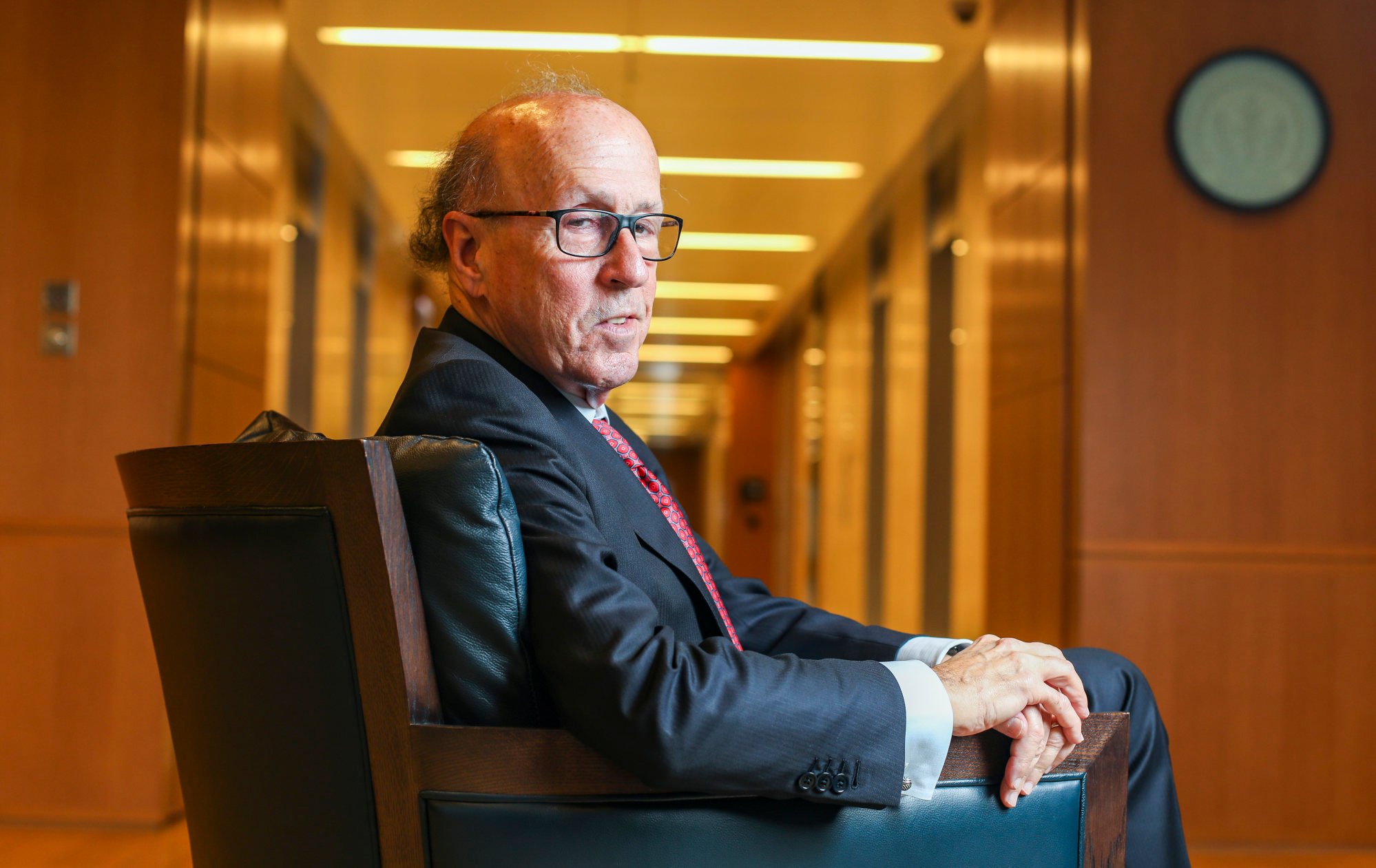Hong Kong authorities’ swift, statistics-laden response to an American economist’s negative economic outlook for the city and the wider nation reflects an urgent need to counter such views, experts and an insider have said, though one observer has called for a more analytical approach in the future.
Stephen Roach, a former chairman at Morgan Stanley Asia, had already made waves in February when he penned an op-ed titled “It pains me to say Hong Kong is over”.
But the American economist went a step further earlier this week, saying Hong Kong’s economy would struggle to recover without a change in fortunes in mainland China.
City authorities issued a lengthy reply on Wednesday without naming the recipient, urging “let data and facts speak for Hong Kong’s bright future”.
The strong reaction to Roach’s latest remarks contrasted heavily with the city government’s muted response on previous occasions.
A government insider on Thursday said the prompt and direct statement packed with economic data had been deemed “necessary” by officials.
“Roach represents the school of thought shared by some doomsayers overseas, particularly the pessimistic views about the Chinese economy. We wanted to react promptly,” the source said.
Political analyst Lau Siu-kai said the response reflected the urgent need to challenge Roach’s assessment and other Western critics who “set out to smear Hong Kong out of ill intentions” by arguing the city and the mainland’s short-term economic challenges signalled long-term decline or collapse.
Lau, a consultant with Beijing’s semi-official think tank, the Chinese Association of Hong Kong and Macau Studies, also argued authorities should adopt a more analytical approach when countering criticisms.
“One thing the government can do is cite the views of local and international experts who take issue with Roach’s opinions on ‘analytic’ grounds,” he said.
“What we also need is not only citing current data but also presenting the long-term structural and historical factors that are favourable to Hong Kong, particularly China’s development potential.”
The Hong Kong government’s statement also slammed the arguments from the unnamed recipient as “obviously” overlooking the city’s existing advantages.
Authorities cited Hong Kong and the mainland’s steadily improving growth, which had outpaced some developed economies.
The reply listed a range of positive economic indicators, such as the city’s rebound from a period of contraction in 2022 to achieving 3.3 per cent growth a year later.
It also noted the market value of Hong Kong’s stock market had exceeded HK$33 trillion (US$4.2 trillion), 10 times that amid the handover in 1997.

Roach, who is a senior fellow at Yale University, was previously considered an optimist about China’s prospects, but recently said the mainland economy was “likely to underperform over the foreseeable future”.
Such a situation would make it difficult for the Hong Kong economy to rebound on its own, given the links between the city and the mainland had tightened, he said.
After returning to the US from his recent Hong Kong trip, Roach told the Post: “The latest statement of the Hong Kong government is descriptive, not analytical. I pose a problem in my analytical work on Hong Kong – the government responds with descriptive spin.”
He wrote on social media on Thursday that the government’s response was “sadly predictable – unwilling to debate the core issues I have raised about tight economic linkages between Hong Kong and a growth-challenged Chinese economy”.
Billy Mak Sui-choi, an associate professor with Baptist University’s department of accountancy, economics and finance, said that while the information in the government’s reply might be familiar to Hongkongers, it could still prove valuable to target audiences outside the United States.
“For example, the underperformance of Hong Kong’s stock market was partly due to the withdrawal of the American and European funds. Are people in Southeast Asian countries well aware of its longer-term trajectory? I don’t think so,” he said.
“The objective figures presented by the government still matter. After all, Roach, an influential US-based economist, still has the potential to sway others with his views.”
Roach’s February op-ed in the Financial Times triggered fierce replies from political and business leaders in the city, such as former Hong Kong Exchanges and Clearing chairwoman Laura Cha Shih May-lung, Executive Council convenor Regina Ip Lau Suk-yee and HSBC chief executive Noel Quinn.
The American economist later wrote a piece for the Post, arguing Hong Kong might be incapable of recovering from the triple shocks of losing its high degree of political autonomy, the protracted malaise of the mainland economy, and US-China tensions.


